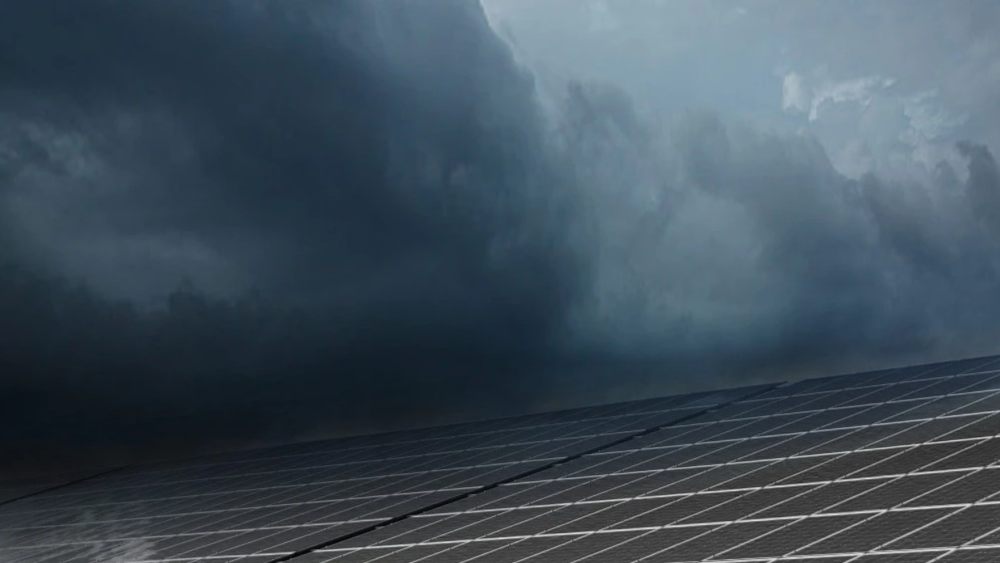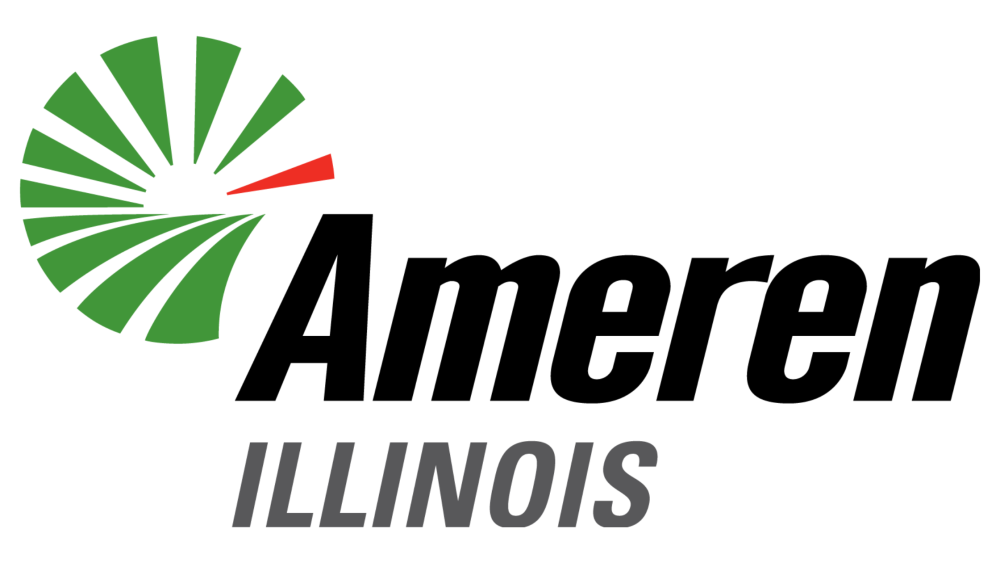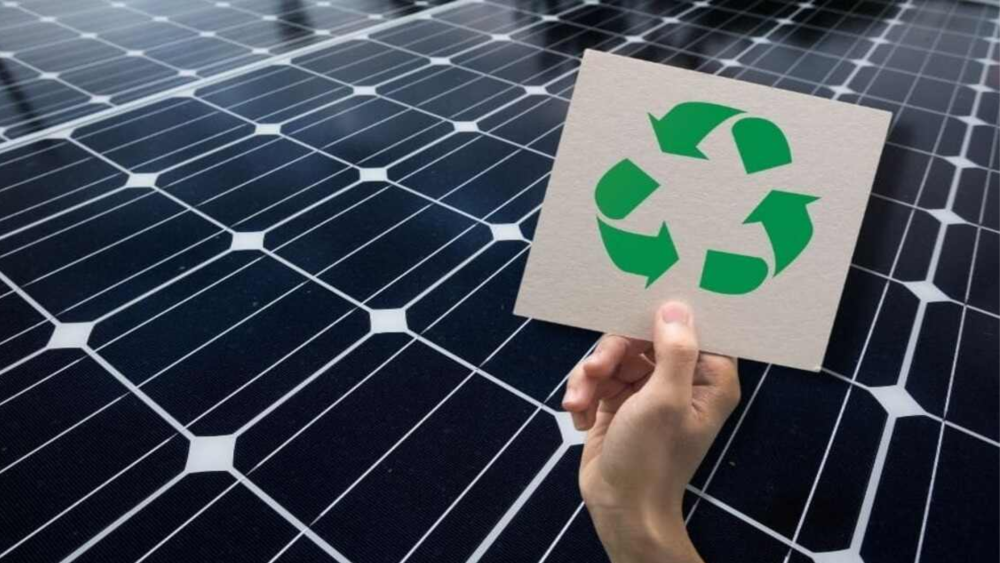Try our solar cost and savings calculator
What solar incentives are available in Maine?
As a homeowner in Maine, you have access to several different tax incentives that make solar panels more affordable. Solar incentives are available at both the federal and state levels to help you save thousands on your investment in solar energy.
Solar Calculator is here to help you take the next step in your transition to renewable energy. Below, we’ll discuss some of the different ways you can make solar more affordable.
Federal solar incentives
As part of the Inflation Reduction Act of 2022, congress passed several clean energy provisions to reduce energy costs. Among those provisions was an extension and upgrade of the Federal Investment Tax Credit (ITC).
Federal Investment Tax Credit
The Federal ITC allows you to claim 30% of your total equipment and installation costs on your federal taxes. There is no minimum or maximum amount you can claim and it includes equipment, installation, permitting, and even battery storage.
The ITC will remain at 30% until December 31, 2032. After that it will be reduced to 26% until December 31, 2033, then to 22% the following year. The ITC is currently set to disappear in 2035 unless it is renewed.
Who is eligible for the Federal ITC?
Most homeowners will qualify for the Federal ITC, but not all. You must meet the following criteria to claim your 30% tax credit:
The Federal ITC will also cover the following expenses:
Homeowners save around $10,000 on average with the Federal ITC. But that number can be higher or lower depending on your total expenses.
How to claim the Federal ITC
Claiming your Federal ITC couldn’t be easier. All you have to do is fill out IRS form 5695 and submit it with your tax return. You can consult with a tax professional for more assistance.
Local solar incentives
Who’s eligible : Commercial, Local Government, Nonprofit, Residential, State Government, Tribal Government, Low Income Residential
How to apply : Efficiency Maine administers a rebate program that offers instant and mail-in rebates for qualifying battery electric vehicles (BEV) and plug-in hybrid electric vehicles (PHEV) at participating dealers or through direct purchase from a manufacturer. Rebates are listed below; rebates for individuals vary based on income and rebate limits vary as well: Individuals - New BEV: $2,000 (Any Income), $3,500 (Moderate Income), $7,500 (Low Income) - New PHEV: $1,000 (Any Income), $2,000 (Moderate Income), $3,000 (Low Income) - Used BEV/PHEV: $2,500 (Low Income) Businesses/Organizations - New BEV: $2,000 - New PHEV: $1,000 Governmental Entities/Tribal Governments/Select Non-Profits - New BEV: $7,500 - New PHEV: $2,000 Click here for more information.
Who’s eligible : State Government
How to apply : In November of 2019, Governor Mills signed Executive Order 13, which requires state agencies to develop and implement a sustainability plan to meet or exceed the states renewable energy and greenhouse gas reduction timelines and targets. It further requires the procurement of environmentally preferable products and services, encourage practices that lead to less wasteful workplaces and account for climate change projections when designing or siting new facilities or projects. The full text of the executive order can be found here. Maine Statutes Title 5, Section 1764-A also requires that plans and designs for the construction of new or substantially renovated buildings owned or leased by the state include: (1) the consideration of energy efficiency, (2) an energy use target that exceeds standards for commercial and institutional buildings by at least 20%, and (3) a life-cycle cost analysis over a minimum of 30 years that explicitly addresses the costs and benefits of efficiency improvements. The state agency responsible for approving the new construction or renovation may not grant approval until the entity proposing the construction has shown that it has duly considered the most energy-efficient and environmentally efficient designs that are suitable. History Legislation in 2009 created the Task Force to Advance Energy Efficiency, Conservation, and Independence at State Facilities; the Task Force issued its recommendations in January 2010. Further back, in March 2005, the governor of Maine announced that the state would join the federal "Energy Star Challenge." As part of this partnership, the state committed to encouraging building owners and operators throughout Maine to improve energy efficiency by 10% or more using performance contracting and other mechanisms. The state also agreed to track energy use and greenhouse gas emissions from government buildings and identify the best ways to improve energy efficiency in those buildings.
Who’s eligible : Commercial
How to apply : The Maine Department of Transportation's plan for NEVI funding will help construct about 1,105 miles of EV charging corridors. On March 23, 2023, Efficiency Maine released an RFP for DC fast charging stations (Maine Phase 5), and proposals were due by June 22, 2023. The Maine DOT released its 2023 plan update during Q3 2023, which details that planning activities will continue during FY 22-26 to determine the best use of NEVI funds later in the years. Efficiency Maine released another RFP for DC fast charging station (Maine Phase 6) in early October 2023, with a proposal due date of January 16, 2024. Awards for this RFP were released in Q1 2024, and nine sites with 37 DCFC ports were awarded. A progress report was then released in May 2024, which stipulated that out of 15 NEVI-supported DCFC stations, one was designated as active, and the rest were designated as coming soon.
Who’s eligible : Commercial, Industrial, Local Government, Nonprofit, Residential, Schools, State Government, Federal Government
How to apply : The Maine Public Utility Commission (PUC) adopted interconnection procedures in January 2010; the rules were last updated in 2020. These rules apply to all transmission and distribution utilities operating in the state and apply to all distribution generation (not just renewables). Maine's interconnection procedures, based in part on the Interstate Renewable Energy Council's. 2006 Model Interconnection Procedures,* identify four different tiers with corresponding technical screens. These are: Level 1: Small certified generating, inverter-based facilities 25 kilowatts (kW) or less; Level 2: Certified facilities 2 megawatts (MW) or less; Level 3: Non-exporting, certified facilities 10 MW or less; Level 4: Any generating facility that does not qualify for the aforementioned levels of review, and are not subject to jurisdiction of the Federal Energy Regulatory Commission (FERC). Fees and Requirements Fees for interconnection requests increase with each level. A Level 1 request must submit a $100 fee; a Level 2 request must submit a fee of $100 plus $2/kW of generator capacity; a Level 3 request must submit $100 plus $3/kW of generator capacity; and a Level 4 request must submit an application fee of $3,000. In addition, Level 4 applicants are responsible for fees associated with the interconnection study, as well as any utility upgrades required to accommodate the requested interconnection. Project designs require review and approval by a Maine Licensed Professional Engineer for generators greater than 50 kW. Equipment Standards The PUC specifies that IEEE Standard 1547 (“Standard for Interconnecting Distributed Resources with Electrical Power Systems”) and UL 1741 ("Inverters, Converters, and Controllers for Use in Independent Power Systems") as the technical standards of evaluation. Systems are considered to be certified for interconnection if the components have been tested and listed by a Nationally Recognized Testing Laboratory (NRTL) and if they meet the definition of certification under FERC Order 2006 for Small Generator Interconnection Procedures, according to these standards. Additional controls (such as external disconnect switches) are not permitted when facilities use certified equipment. Insurance Requirements Depending on the size of the small generator facility, insurance requirements differ. No insurance is required for inverter-based facilities with a rated capacity of 1 MW or less. Inverter-based facilities with a rated capacity exceeding 2 MW but less than or equal to 5 MW must carry liability insurance with coverage of at least $1 million. Facilities with rated capacity greater than 5 MW must carry liability insurance with coverage of at least $2 million. Insurance coverage for non-inverter-based generating facilities ranges from no insurance (50 kW or less) to $3 million (for facilities greater than 5 MW). Government Standard Form Interconnection Agreement In May 2014, the PUC adopted a standard form interconnection agreement for use exclusively by federal government entities. The agreement is a modified version of the standard form interconnection agreement, with changes made to comply with the Antideficiency Act, the Federal Tort Claims Act, and the Automatic Payment of Judgments Act. Under this agreement, federal government entities will self-insure and are not required to carry insurance. * IREC updated its model interconnection procedures in 2013. The 2013 model is available on IREC's website. The information provided here covers several important classification criteria and provides a brief summary of the procedures. Consult the actual rule for official definitions, additional restrictions, and comprehensive information on the technical screens.
Who’s eligible : Investor-Owned Utility
How to apply : Maine has a goal of developing 3,000 megawatts (MW) of wind energy in proximate federal waters by December 31, 2040. Beginning January 1, 2025 and every two years thereafter the Governor's Energy Office may reevaluate and increase the goal. Maine law (35-A MRSA §3408, enacted in 2023) also requires the Governor's Energy Office to establish a schedule for competitive solicitations for the development of offshore wind. History: Maine previously had a goal of deploying at least 5,000 MW of offshore wind in coastal waters by 2030, but this was amended by L.D. 1895 of 2023.
Can you claim multiple tax incentives in Maine?
Yes. You are allowed to claim multiple solar incentives for the same installation. However, you can only claim each incentive once. For more guidance on how to claim your solar tax incentives, talk to your installer or consult with a licensed tax professional before submitting your tax forms.
Does Maine offer tax exemptions?
Rebate Program
Category : Financial Incentive
Website : https://www.efficiencymaine.com/electric-vehicle-rebates/
Applicable Sectors : Commercial, Local Government, Nonprofit, Residential, State Government, Tribal Government, Low Income Residential
Incentive Amount : Battery EVs: $2,000 (individuals at any income), $3,500 - $7,500 (low- to moderate-income individuals), $2,000 (businesses & organizations), $7,500 (governmental entity, tribal government, or select nonprofit) PHEVs: $1,000 (individuals at any income), $2,000 - $3,000 (low- to moderate-income individuals), $1,000 (businesses & organizations), $2,000 (governmental entity, tribal government, or select nonprofit) Used BEVs/PHEVs: $2,500 (low- to moderate-income individuals)
Implementing Sector : State
Category : Financial Incentive
Website : http://www.efficiencymaine.com/at-work/ci-prescriptive-incentive-program/
Applicable Sectors : Commercial, Industrial, Local Government, Nonprofit, Schools, State Government, Federal Government, Agricultural, Multifamily Residential, Institutional
Incentive Amount : Commercial Heating, Ventilation, and Air Conditioning (HVAC) Solutions: Heat Pump Mini-Splits (Air-to-Air; Retrofit): $1,200 to $2,000 Heat Pump Mini-Splits (Air-to-Air; New Construction): $500 - $1,000 Small Business Heat Pump Retrofit: $1,600 - $2,400 per single-zone unit, up to 3 units Multifamily Mini-Split Heat Pump (Retrofit): $7.00/sq.ft., up to 3 units Multifamily Mini-Split Heat Pump (New Construction): $3.25/sq.ft., up to 3 units Heat Pump Rooftop Units (Retrofit): $3,120 – $15,600 Heat Pump Rooftop Units (New Construction): $720 – $3,600 Packaged Terminal Heat Pumps (Retrofit): $430- $480/unit Packaged Terminal Heat Pumps (New Construction): $380/unit Vertical Packaged Terminal Heat Pumps (Retrofit): $430 - $480/unit Vertical Packaged Terminal Heat Pumps (New Construction): $380/unit Variable Refrigerant Flow (VRF) Systems (Retrofit): $10.00/sq.ft. - $15.00/sq.ft. Variable Refrigerant Flow (VRF) Systems (New Construction): $4.00/sq.ft. - $7.00/sq.ft. Water Source Heat Pumps: $100 per ton for ducted units with a capacity less than 135,000 Btu/h Demand Control Ventilation: $500 - $1,000 ECM Circulator Pumps: $75 - $250 Energy Recovery Ventilator (ERV) Systems: $1.50/CFM - $2.25/CFM Variable-Frequency Drive (VFD) Systems: $400 - $2,300 Biomass Boilers and Furnaces: Varies Commercial Boiler Controls and Ancillary Equipment (Refrofit): Varies Refigeration Equipment: Varies Lighting: Varies Compressed Air Equipment: Varies Agricultural Equipment: Varies Water Heaters: Varies Multifamily Weatherization: 50% of project cost, up to $5,000
Implementing Sector : State
Category : Financial Incentive
Website : http://www.efficiencymaine.com/at-home/appliancerebate-program/
Applicable Sectors : Commercial, Residential, Federal Government, Low Income Residential
Incentive Amount : Heat Pump Water Heaters: $850; free for low-income households Clothes Washer: $50
Implementing Sector : State
Category : Financial Incentive
Website : http://www.efficiencymaine.com/at-home/home-energy-savings-program/
Applicable Sectors : Residential, Low Income Residential
Incentive Amount : Geothermal Heat Pumps: One-third of the project cost, up to a $3,000 rebate Insulation: 80% of the project cost, up to an $8,000 rebate Whole-Home Heat Pumps: $4,000 to $8,000 for whole-home heat pumps Biomass Boilers and Furnaces: One-third of the project cost, up to a $6,000 rebate
Implementing Sector : State
Energy Standards for Public Buildings
Category : Regulatory Policy
Website : https://www.efficiencymaine.com/docs/Lead-by-Example-Initiative.pdf
Applicable Sectors : State Government
Incentive Amount :
Implementing Sector : State
Grant Program
Category : Financial Incentive
Website : https://www.efficiencymaine.com/at-work/electric-vehicle-supply-equipment-initiative/
Applicable Sectors : Commercial
Incentive Amount : Varies
Implementing Sector : State
Category : Financial Incentive
Website : https://www.maine.gov/energy/initiatives/infrastructure/gridresilience
Applicable Sectors : Commercial, Industrial, Investor-Owned Utility, Local Government, Municipal Utilities, Cooperative Utilities, Retail Supplier, Institutional
Incentive Amount : Varies
Implementing Sector : State
Interconnection
Category : Regulatory Policy
Website : https://www.maine.gov/mpuc/sites/maine.gov.mpuc/files/inline-files/Rule-Effective-3-15-2020_0.pdf
Applicable Sectors : Commercial, Industrial, Local Government, Nonprofit, Residential, Schools, State Government, Federal Government
Incentive Amount :
Implementing Sector : State
Offshore Wind Energy Target
Category : Regulatory Policy
Website : https://www.maine.gov/energy/initiatives/offshorewind
Applicable Sectors : Investor-Owned Utility
Incentive Amount :
Implementing Sector : State
Performance-Based Incentive
Category : Financial Incentive
Website : https://www.efficiencymaine.com/demand-management/small-battery-management/
Applicable Sectors : Commercial, Residential
Incentive Amount : $100/kW
Implementing Sector : State
PACE Financing
Category : Financial Incentive
Website : http://www.efficiencymaine.com/at-home/energy-loans/
Applicable Sectors : Residential
Incentive Amount :
Implementing Sector : State
Category : Financial Incentive
Website : https://www.efficiencymaine.com/c-pace/
Applicable Sectors : Commercial, Multifamily Residential
Incentive Amount :
Implementing Sector : State
Loan Program
Category : Financial Incentive
Website : http://www.efficiencymaine.com/at-home/energy-loans/
Applicable Sectors : Residential
Incentive Amount :
Implementing Sector : State
Appliance/Equipment Efficiency Standards
Category : Regulatory Policy
Website : https://www.maine.gov/dep/air/compliance/appliance.html
Applicable Sectors :
Incentive Amount :
Implementing Sector : State
Solar/Wind Permitting Standards
Category : Regulatory Policy
Website : http://www.maine.gov/dacf/municipalplanning/publications.shtml
Applicable Sectors : Commercial, Industrial, Local Government, Nonprofit, Residential, Schools, State Government, Federal Government, Agricultural, Institutional
Incentive Amount :
Implementing Sector : State
Generation Disclosure
Category : Regulatory Policy
Website : https://www.maine.gov/mpuc/consumer-assistance/faq
Applicable Sectors : Investor-Owned Utility, Municipal Utilities, Cooperative Utilities
Incentive Amount :
Implementing Sector : State
Energy Storage Target
Category : Regulatory Policy
Website : https://www.maine.gov/energy/initiatives/renewable-energy/energy-storage
Applicable Sectors :
Incentive Amount :
Implementing Sector : State
Solar/Wind Access Policy
Category : Regulatory Policy
Website :
Applicable Sectors : Residential, Multifamily Residential
Incentive Amount :
Implementing Sector : State
Property Tax Incentive
Category : Financial Incentive
Website : https://www.maine.gov/revenue/taxes/tax-relief-credits-programs/property-tax-relief-programs/property-tax-exemptions#:~:text=Property%20owners%20would%20receive%20an%20exemption%20of%20%2425%2C000.&text=Renewable%20Energy%20Investment%20Exemption%20%2DThi
Applicable Sectors : Commercial, Industrial, Residential, Agricultural, Multifamily Residential
Incentive Amount : 100% exemption
Implementing Sector : State
Net Metering
Category : Regulatory Policy
Website : https://www.maine.gov/mpuc/regulated-utilities/electricity/neb
Applicable Sectors : Commercial, Industrial, Nonprofit, Residential, Schools, Agricultural, Multifamily Residential, Institutional
Incentive Amount :
Implementing Sector : State
Building Energy Code
Category : Regulatory Policy
Website : https://www.maine.gov/dps/fmo/building-codes
Applicable Sectors : Commercial, Residential
Incentive Amount :
Implementing Sector : State
Mandatory Utility Green Power Option
Category : Regulatory Policy
Website : https://www.maine.gov/mpuc/regulated-utilities/electricity/renewable-programs/green-power/faq
Applicable Sectors : Commercial, Investor-Owned Utility, Residential, Multifamily Residential
Incentive Amount :
Implementing Sector : State
Sales Tax Incentive
Category : Financial Incentive
Website : https://www.maine.gov/revenue/
Applicable Sectors : Commercial
Incentive Amount : 100% reimbursement
Implementing Sector : State
Renewables Portfolio Standard
Category : Regulatory Policy
Website : https://www.maine.gov/energy/initiatives/renewable-energy/renewable-portfolio-standards
Applicable Sectors : Investor-Owned Utility, Retail Supplier
Incentive Amount :
Implementing Sector : State
Community Solar Rules
Category : Regulatory Policy
Website : https://www.maine.gov/mpuc/regulated-utilities/electricity/neb
Applicable Sectors : Commercial, Industrial, Local Government, Nonprofit, Residential, Schools, Multifamily Residential, Low Income Residential
Incentive Amount :
Implementing Sector : State
Green Power Purchasing
Category : Regulatory Policy
Website : https://www.maine.gov/mpuc/greenpower/
Applicable Sectors : State Government
Incentive Amount :
Implementing Sector : State
Public Benefits Fund
Category : Regulatory Policy
Website : http://www.efficiencymaine.com/
Applicable Sectors : Commercial, Local Government, Nonprofit, Residential, Schools, Institutional
Incentive Amount :
Implementing Sector : State
Category : Regulatory Policy
Website : http://www.efficiencymaine.com
Applicable Sectors : Commercial, Industrial, Local Government, Nonprofit, Residential, Schools, State Government, Federal Government, Agricultural, Multifamily Residential, Low Income Residential, Institutional
Incentive Amount :
Implementing Sector : State
Energy Efficiency Resource Standard
Category : Regulatory Policy
Website :
Applicable Sectors : Investor-Owned Utility, Municipal Utilities, Cooperative Utilities
Incentive Amount :
Implementing Sector : State
What is the best way to pay for solar?
Cash payments
Paying cash upfront is easily the simplest and most cost-effective route — if you can afford it. It lets you maximize your total savings by avoiding interest rates and other fees. You also don’t have to worry about making monthly payments. But the downside is you have to spend a lot of cash at once which isn’t an option for everyone.
Pros
Cons
Financing
Financing solar panels is probably the most common payment method. You get to own the system — as opposed to leasing — but you don’t have to spend all your cash at once. And although you do have to pay interest, you can secure a fairly low interest rate as long you have good credit.
Pros
Cons
Solar leases and PPA agreements
If purchasing solar equipment isn’t an option for you, a lease or a PPA may be worth exploring. This is where you are essentially “renting” the equipment for a fixed rate each month. And although you don’t have ownership of your system, there are other benefits such as maintenance and servicing agreements.
Pros
Cons
Going solar doesn’t have to break the bank
Going solar is becoming more affordable than ever. And thanks to a variety of solar incentives in Maine, you can save thousands more on your investment.
Want to get an idea for what it will cost you to go solar? You can use our solar cost calculator to generate a customized estimate instantly. We take into consideration a wide range of criteria including location, electric bill, roof size, and other factors. Try it out today and start planning for your future.




